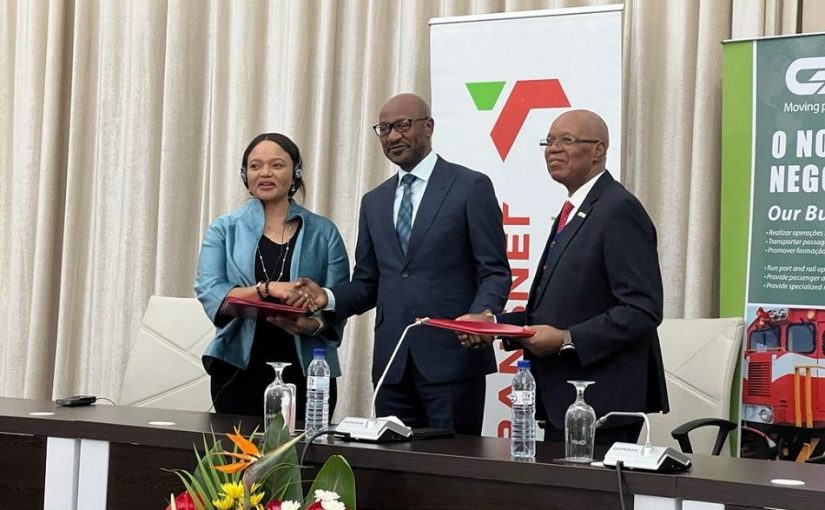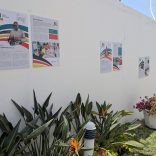Mozambique: Discussions on minimum wages to be held in August
Mozambique’s CFM and South Africa’s Transnet sign agreement

Photo: Notícias
In a historic development, Ports and Railways of Mozambique (CFM) cargo trains and those of its South African counterpart, Transnet Freight Rail (TFR), are to circulate unimpeded in both countries.
CFM trains will travel to the Belfast area of South Africa, while TFR trains will travel to the Port of Maputo.
For give effect to the historic decision, the two companies signed an agreement in Maputo on Sunday eliminating the necessity for trains in both directions to change locomotives at the border, and consequent delays.
The Chairman of the Board of Directors of CFM, Miguel Matabel, and the CEO of Transnet Freight Rail, Sizakele Mzimela, signed the agreement, witnessed by the Minister of Transport and Communications, Mateus Magala.
Speaking after the ceremony, Minister Magala said that the agreement went far beyond a simple contract, and represented a paradigm shift, in which cooperation would improve the corridor’s competitiveness.
The uninterrupted passage of trains agreed yesterday would also reduce transit times, offering customers a more efficient and economical logistics solution, he added.
“Our railway operator (CFM) will start to take long-distance trains into South African territory. We are witnessing another step on the way to true regional integration,” the minister explained.
Minister Magala, seconded by CFM chairman Miguel Matabel, said the start of trains running in both directions would also reducing operating costs and improve cargo flows at the Port of Maputo, where the government expected goods handling to increase from the 48 million tons registered in 2021 to 83 million tons by 2024.
Miguel Matabel stressed that the increase in the number of trains could potentially reduce the amount of cargo currently transported by road, via the N4.
The CEO of Transnet Freight Rail Sizakele Mzimela noted that the agreement was likewise advantageous on the South African side, where customers were looking for alternative ways to get their goods to ports.
She said that the understanding would open up opportunities for customers to ferry cargo, especially ores and mining products, to the Port of Maputo.












Leave a Reply
Be the First to Comment!
You must be logged in to post a comment.
You must be logged in to post a comment.